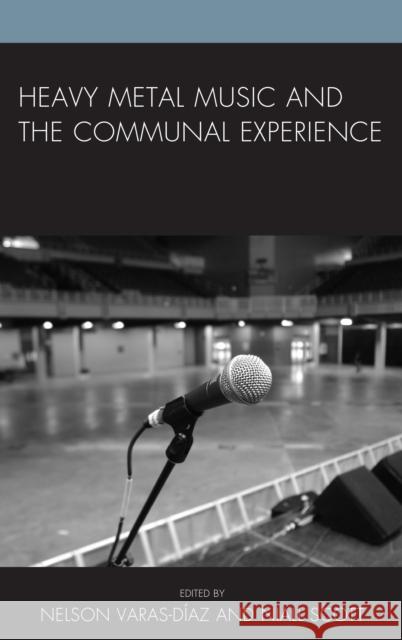Heavy Metal Music and the Communal Experience » książka
Heavy Metal Music and the Communal Experience
ISBN-13: 9781498506380 / Angielski / Twarda / 2016 / 230 str.
Heavy Metal Music and the Communal Experience
ISBN-13: 9781498506380 / Angielski / Twarda / 2016 / 230 str.
(netto: 495,90 VAT: 5%)
Najniższa cena z 30 dni: 477,23 zł
ok. 30 dni roboczych
dostawa w 2025
Darmowa dostawa!
It is common to hear heavy metal music fans and musicians talk about the metal community . This concept, which is widely used when referencing this musical genre, encompasses multiple complex aspects that are seldom addressed in traditional academic endeavors including shared aesthetics, musical practices, geographies, and narratives. The idea of a metal community recognizes that fans and musicians frequently identify as part of a collective group, larger than any particular individual. Still, when examined in detail, the idea raises more questions than answers. What criteria are used to define groups of people as part of the community? How are metal communities formed and maintained through time? How do metal communities interact with local cultures throughout the world? How will metal communities change over the lifespan of their members? Are metal communities even possible in light of the importance placed on individualism in this musical genre? These are just some of the questions that arise when the concept of community is used in relation to heavy metal music. And yet in the face of all these complexities, heavy metal fans continue to think of themselves as a unified collective entity. This book addresses this notion of metal community via the experiences of authors and fans through theoretical reflections and empirical research. Their contributions focus on how metal communities are conceptualized, created, shaped, maintained, interact with their context, and address internal tensions. The book provides scholars, and other interested in the field of metal music studies, with a state of the art reflection on how metal communities are constituted, while also addressing their limits and future challenges."











